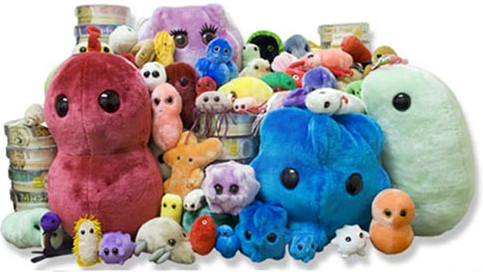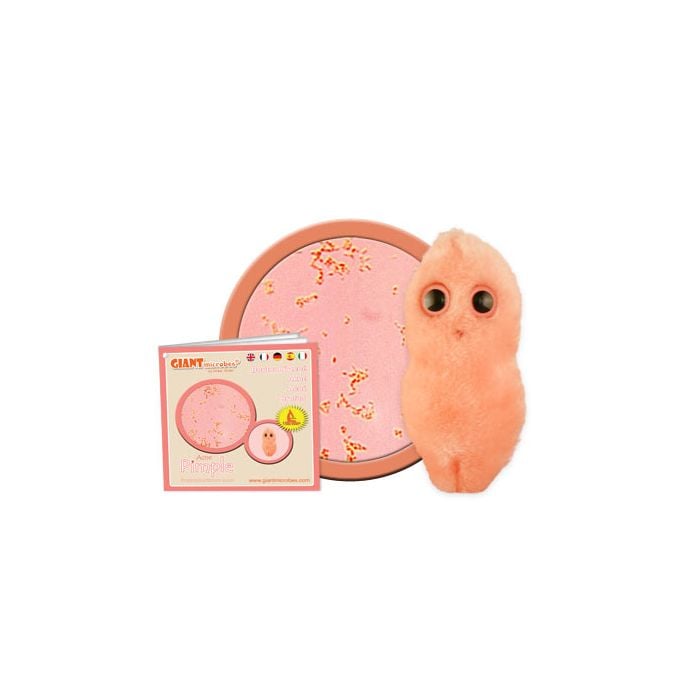Pimple (Propionibacterium acnes)
Out of Stock
Product Details
Additional Information
| Sizes | Giantmicrobes are based on actual microbes, cells, organisms and other critters, only 1,000,000 times actual size! Gigantic (GG) 40-60cm XL (XL) 25-38cm Original (PD) 12-20cm Minis (MM) 5-10cm each Keychain (KC) 5-10cm with clip |
|---|---|
| Materials | Plush from all new materials. Stuffed with polyester fiber fill. Surface washable: sponge with water & soap, air dry. |
| Packaging | Each plush microbe includes a printed card with fun, educational and fascinating facts about the actual microbe or cell. |
| Safety | Every product meets or exceeds U.S. and European standards for safety. For ages 3 and up. |
All about Pimple (Propionibacterium acnes)
FACTS: While adults sometimes have acne, nearly 100% of the population suffers breakouts at some point in their teenage years. Like the food at the school cafeteria, it is just an unpleasant part of growing up!
Propionibacterium acnes is the skin bacteria significantly responsible for the condition. The increased production of testosterone during puberty (which occurs in both boys and girls) causes the sebaceous glands to increase production of oily sebum. Normally, the oil just seeps out, keeping the skin lubricated and helping to remove dead skin cells. But when the flow increases, pores get clogged.
Since P. acnes loves sebum, it multiplies rapidly in skin pores, causing redness and swelling and a variety of lesions ranging from: open comedones (blackheads); closed comedones (whiteheads); papules (solid bumps); pustules (bumps containing pus); macules (flat red splotches); nodules (deeper and inflamed papules); and cysts (angry, deep-layer lesions that can cause scarring).
What can you do about acne? Creams with benzoyl peroxide can help in many cases. But if P. acnes won't take the hint, don't fool around – see a dermatologist.
| Name | The genus name describes this microbe’s ability to produce propionic acid, which helps it to digest fats. The species name comes from the symptoms it causes. You guessed it: acne! |
|---|
| Actual Size | 0.8 x 5.0 micrometers – That’s a thousand times smaller than a grain of salt! |
|---|
| Where It Lives | Most cases of acne and pimples are caused by bacteria called Propionibacterium acnes. These microbes naturally grow deep inside skin pores and feed on sebum, the oily secretion in our skin. Pimples occur when conditions allow P. acnes to overgrow and cause inflammation. Acne is commonly seen in the teenage years because of hormone changes that create those conditions. If you are a teen or have ever been a teen, you’ve probably had acne. Consider it a rite of passage to adulthood! |
|---|
| Symptoms | Pimples filled with pus and redness of the skin. |
|---|
| Cure | Treatments for acne vary from antibiotics to phototherapy. |
|---|
| History | The microbe was first discovered in 1954 by French scientists, Prevot and Tardieux. |
|---|
| Fascinating Facts | In 2014, Italian molecular biologists studying microbes living inside grapevines found P. acnes growing on the vines. They named this subtype P. zappae after famous musician Frank Zappa. |
|---|





